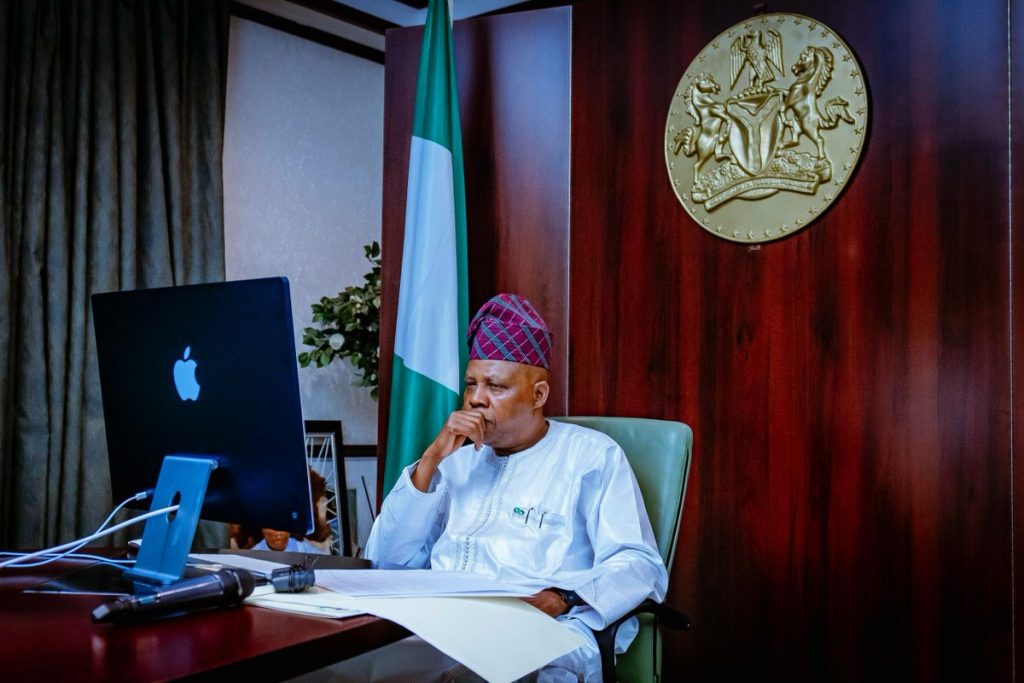Vice President Kashim Shettima has called for enhanced international collaboration to advance Nigeria’s Human Capital Development 2.0 (HCD 2.0) strategy.
Speaking virtually at a high-level roundtable on the sidelines of the 2025 World Bank and International Monetary Fund (IMF) Spring Meetings, Shettima reaffirmed President Bola Tinubu’s commitment to placing human potential at the centre of national progress.
He stressed that the success of the HCD 2.0 agenda would depend on evidence-based interventions, data-driven policies, and sustained political will.
READ ALSO: Okpebholo leads global investment drive for Edo at World Bank/IMF meetings
“This meeting, for us, is not just another item on our global agenda. It is a continuation of a journey whose beginnings I had the privilege of witnessing about seven years ago. True national wealth is found not in natural resources, but in human potential,” he said.
HCD 2.0 is designed to improve Nigeria’s Human Capital Index (HCI) and equip the country to meet emerging national and global challenges, including climate change and the digital economy.
Shettima assured stakeholders that the Nigerian government would provide full political backing to the initiative, highlighting that President Tinubu remained firmly committed to the programme’s success.

“Government is a continuum. Nowhere is this truer than in programmes that demand patience, vision, and long-term commitment—programmes such as our Human Capital Development programme,” he stated.
Under HCD 2.0, six priority indicators from the health, education, and labour sectors have been identified as ‘quick wins’ to drive policy actions and track measurable progress.
Shettima disclosed that a dedicated HCD Dashboard had been developed to guide decisions and assess outcomes.
“We will continue to hold ourselves accountable and press forward toward our bold goal to elevate Nigeria among the top 80 countries in Human Capital Index rankings,” he added.
He further appealed to the World Bank and other development partners to support efforts to generate disaggregated, state-level HCI data, enabling more targeted and effective interventions across the country.
Emphasising the need for equity and inclusiveness, the Vice President pledged that no Nigeria subnational would be left behind.
READ ALSO: ‘Tinubu administration has no achievements to stand on’, says Atiku
“Some of the states have already set a template for the others, having localised the HCD strategies to align with the peculiarities of their people while, of course, aligning them with the national strategy,” he said.
The session featured several key figures from the World Bank, including Executive Director, Zainab Shamsuna Ahmed; Regional Director for Human Development in Western and Central Africa, Trina Haque; Senior Social Protection Specialist and Regional Task Team Leader, Tina George; and Chief Economist for Human Development, Norbert Shady.
Members of the Nigerian delegation included Deputy Chief of Staff to the President and Chair of the HCD Core Working Group, Senator Ibrahim Hassan Hadejia, and Special Adviser to the President on National Economic Council and Climate Change/National Coordinator of the HCD Programme, Rukaiya El-Rufai.
World Bank officials at the session reaffirmed the institution’s commitment to strengthening its partnership with Nigeria and proposed senior-level engagement to identify key areas where technical support could be most impactful.
Speeches were also delivered by representatives from several Nigerian states, including Lagos and Akwa Ibom, alongside local and international development organisations.



